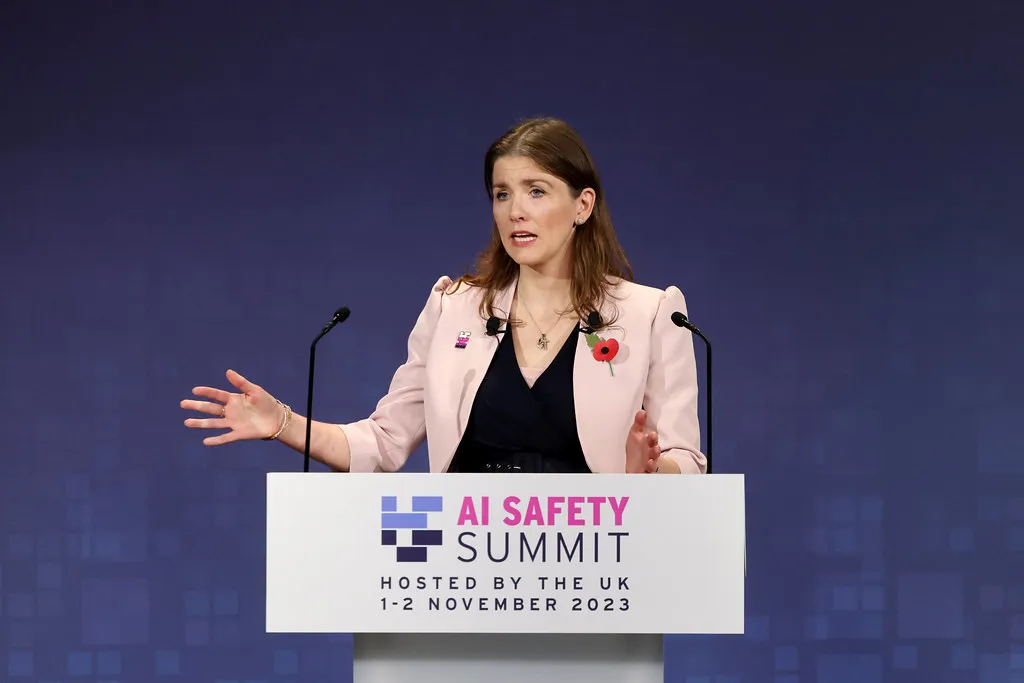In the intense global race for AI supremacy, a notable shift towards cooperation emerged as political leaders declared their commitment to AI Safety.
During the AI Safety Summit held at Bletchley Park in England, UK Minister of Technology Michelle Donelan unveiled the “Bletchley Declaration,” a policy paper designed to establish a worldwide consensus on addressing the present and future risks associated with AI development. Notably, Donelan announced plans to make this summit a regular occurrence, with upcoming meetings scheduled in Korea and France over the next year.
The Bletchley Declaration maintains a high-level approach, emphasizing the need for AI to be developed and deployed in a safe, human-centric, trustworthy, and responsible. It also highlights concerns regarding large language models developed by companies like OpenAI, Meta, and Google, underlining the potential misuse and risks they pose.
Specifically, the declaration points out safety concerns at the “frontier” of AI, referring to highly capable general-purpose AI models, including foundation models, and specific narrow AI models that could exhibit harmful capabilities, possibly surpassing today’s most advanced AI models.
Beyond this declaration, concrete steps were taken at the summit. Gina Raimondo, the US Secretary of Commerce, announced the establishment an AI safety institute to be housed within the Department of Commerce under the National Institute of Standards and Technology (NIST). This institute is intended to collaborate with similar AI safety groups set up by other governments, such as the UK’s planned Safety Institute.
Raimondo emphasized the importance of global policy alignment, calling for cooperation between these institutes to tackle AI safety issues globally.
The summit featured a diverse array of political leaders, representing both major world economies and developing countries from the Global South. Their shared message focused on inclusivity and responsibility, but the practical implementation of these ideals remains uncertain.
Concerns were voiced about the potential consequences of rapidly advancing AI capabilities and the need to safeguard society. Ian Hogarth, chair of the UK government’s task force on foundational AI models and a key organizer of the conference, expressed concern about the current gap in understanding the risks and benefits of AI developments, stressing the importance of the collective efforts of policymakers and industry stakeholders to address these challenges.
The commitment to address AI safety is clear, but the ultimate impact and outcomes of these collaborative efforts remain to be seen, with the responsibility to address these pressing issues being the focus of deliberation over the coming days.


















